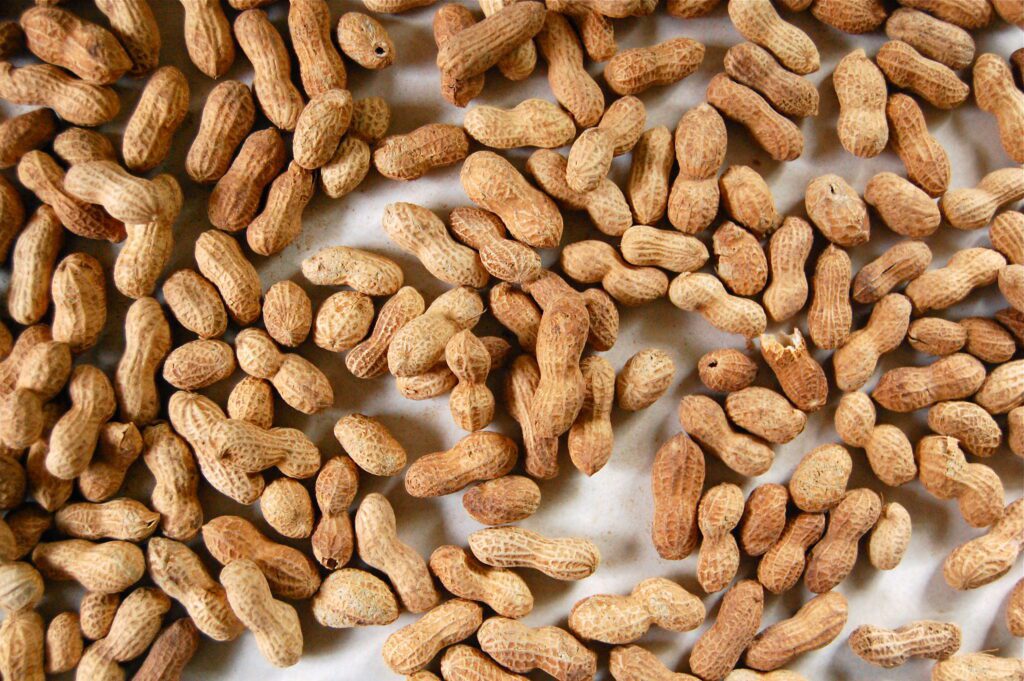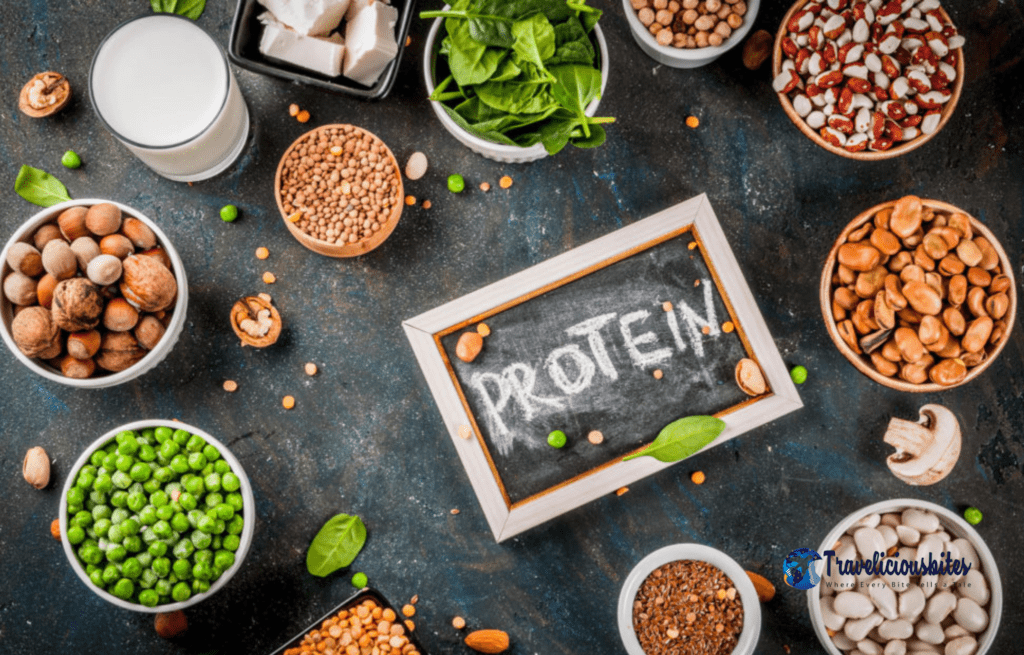Plant-based protein is having a serious moment, and for good reason! More and more people are swapping out animal sources for plant-powered options, whether it’s for ethical reasons, a health kick, or just wanting to be kinder to the planet. Whatever your motivation, this shift towards green protein reflects a bigger trend – we’re getting smarter about what we eat and how it affects our bodies and the world around us.
So, you might be vegan, vegetarian, or just curious about cutting back on the meat. No matter where you’re at, plant-based protein is your new best friend. Packed with essential nutrients, fiber, and zero cholesterol, options like beans, nuts, seeds, and soy products offer a delicious and diverse way to fuel your body and feel amazing. From cozy bean chili to creamy almond butter smoothies, incorporating plant-based protein is a tasty adventure towards a healthier, happier you. Ready to dive in? Let’s go!
Table of Contents
The Alluring Benefits of Plant-Based Protein
Health benefits of Plant-Based Protein
First things first, plant-based protein isn’t just some boring health trend. It’s a delicious and versatile way to fuel your body with the good stuff. Flavorful lentil soup, a refreshing quinoa salad packed with crunchy veggies, or creamy almond butter smoothies fueling your morning. Yum isn’t it? But it’s not just about taste (although let’s be honest, that’s a major perk). Plant protein packs a serious nutritional punch, loaded with essential vitamins, minerals, and antioxidants that keep your body humming like a well-oiled machine.
Speaking of well-oiled machines, remember those sluggish afternoons after a heavy meat meal? Swap that for the sustained energy boost you get from plant protein. Unlike its animal-based counterpart, which can be high in saturated fats and cholesterol, plant-based protein keeps your heart happy and cholesterol levels in check. Plus, lower calorie counts make it a dream come true for anyone looking to manage their weight and achieve a leaner physique.
But hold on, it gets even better! Studies show that plant protein can help you recover faster after workouts, thanks to its muscle-building prowess. And let’s not forget the reduced risk of chronic diseases like heart disease and diabetes. Every time you dig into a plate of plant-based protein, you’re not just indulging in a delicious meal, you’re investing in your long-term health and well-being.
Environmental benefits of Plant-Based Protein
Pumped about plant-based protein but worried it won’t fuel your active lifestyle? Research shows switching to plant-based protein benefits not just your body, but also the planet. How? Let’s break it down.
Historically, animal protein ruled the athlete’s plate. Animal proteins tend to guzzle land, water, and energy while pumping out greenhouse gasses (GHGEs) like nobody’s business. Plant protein production requires less land, water, and energy compared to animal protein production, resulting in fewer greenhouse gas emissions overall.
Choosing plant protein over animal-derived options can help mitigate environmental issues such as climate change and agricultural land degradation. Moreover, plant-based diets are more sustainable in the long term, as they require fewer inputs and have a lower environmental footprint. Think juicy lentil burgers instead of beef patties, creamy chickpea curries instead of chicken – delicious AND eco-friendly!
An often overlooked environmental concern is the depletion of high-quality, mineable phosphorus, a vital component of fertilizers used in food production. Vegetarian diets, which rely less on animal products, require considerably less phosphorus to produce. By transitioning to a plant-based diet, you’re not only reducing greenhouse gas emissions but also helping to conserve essential resources like phosphorus.
Different Types of Plant-Based Protein
Going vegan? Whether you’re driven by health, animal welfare, or personal beliefs, embracing a plant-based lifestyle is a rewarding journey. But ensuring you get enough plant-based protein can sometimes feel like navigating a maze.
While the Academy of Nutrition and Dietetics confirms that vegan diets can meet all your nutritional needs, getting enough plant-based protein, calcium, iron, and vitamin B12 requires some planning. This list of protein-packed plant-based powerhouses will help you thrive on your vegan adventure:
Tofu, tempeh, and edamame
From creamy tofu to hearty tempeh, soy products pack a serious protein punch, making them a delicious and versatile addition to your plant-powered diet.

Firm tofu: 10 grams of protein per 1/2 cup, making it a versatile blank canvas ready to absorb the flavors of your favorite dish. Think tofu scrambles for breakfast, flavorful stir-fries, or even a plant-based twist on your classic sandwich or soup.

Edamame: These immature soybeans might be small, but their protein punch is anything but tiny! With 8.5 grams per 1/2 cup, they’re a perfect snack or addition to salads and bowls.
Tempeh: Want a chewier, nuttier plant-based protein experience? Tempeh delivers 15 grams of protein per 1/2 cup, making it ideal for crumbles, burgers, or anything that needs a hearty, satisfying texture.
But the goodness doesn’t stop there! These soy stars are also rich in calcium and iron, making them excellent substitutes for dairy products.
Lentils
These tiny powerhouses, whether red or green, are bursting with protein and fiber, clocking in at a whopping 8.84 grams per ½ cup cooked. But that’s not all! They’re also loaded with essential nutrients like iron and potassium, making them a well-rounded addition to your plant-powered diet.

Lentils are super versatile too! Add them to hearty stews for a warming winter meal, whip up a flavorful curry, or toss them into salads for a protein-packed crunch. They even play nice with rice, creating a complete protein combo that keeps you satisfied for hours.
Chickpeas
Chickpeas are culinary chameleons, seamlessly blending into both savory and sweet dishes while providing a satisfying plant-based protein punch at 7.25 grams per ½ cup cooked.

Their versatility knows no bounds, from adding heartiness to stews and curries to getting a spicy paprika-coated makeover in the oven. And when it comes to hummus, there’s no better way to indulge in a protein-rich, healthful alternative to butter – just spread it on your favorite sandwich and savor the nutty, creamy goodness.
Peanuts

Peanuts aren’t just a delicious snack, they’re protein champions, offering a whopping 20.5 grams per ½ cup. Packed with healthy fats and potential heart health benefits, peanuts can satisfy your cravings and nourish your body. Spread creamy peanut butter (3.6g protein per tbsp!) on whole-wheat bread for a complete protein snack that’s both delicious and good for you. Go nuts for plant protein – your body will thank you!
Quinoa
Quinoa, a versatile grain, is renowned for its high protein content, making it a valuable plant-based protein source.

With approximately 8 grams of protein per cup, quinoa stands out as a complete protein, containing all nine essential amino acids. Beyond its protein prowess, quinoa boasts a rich nutritional profile, offering essential nutrients like magnesium, iron, fiber, and manganese. Its versatility extends to various culinary applications; you can incorporate quinoa into soups, salads, or enjoy it as a standalone main course.
Spirulina

Spirulina, a type of blue or green algae, is a potent plant-based protein source, boasting approximately 8 grams of protein per 2 tablespoons. Besides its protein content, spirulina is packed with essential nutrients like iron, B vitamins (excluding B-12), and manganese. Available in powder or supplement form online, spirulina offers versatility in consumption. You can easily incorporate it into your daily routine by adding it to water, smoothies, or fruit juice.
Mycoprotein
Ever heard of plant protein made from fungi? It’s true! Mycoprotein, a fungus-based protein source, packs around 13g per ½ cup serving, making it a unique addition to your protein arsenal.

Often marketed as meat substitutes like “chicken” nuggets or cutlets, these products offer a convenient way to boost your plant-based protein intake. However, beware: some mycoprotein products contain egg white, so check labels carefully. And while rare, some individuals with mushroom allergies might be sensitive to the specific fungus used in Quorn, a popular mycoprotein brand. If you have food allergies, consult a doctor before trying it. So, explore the world of plant-based protein and see if mycoprotein fits your dietary journey!
Chia seeds
Tiny seeds, mighty impact! Don’t underestimate the plant-based protein power of chia seeds. They’re not just low-calorie and packed with fiber and heart-healthy Omega-3s, but also deliver a complete protein punch – 2 grams per tablespoon!

Blend chia seeds into your smoothies, sprinkle them on plant-based yogurt, or soak them in water or almond milk for a delicious, protein-packed pudding. Find these little nutritional gems at supermarkets, health food stores, or online, and unlock the world of plant protein potential hidden within each tiny seed!
Seitan
Gluten-free? No problem! Seitan, a complete protein made from wheat gluten, offers an alternative for those seeking plant protein options.

While not suitable for celiac disease or gluten sensitivity, it shines for others as a protein-rich meat substitute. When cooked in soy sauce, rich in the amino acid lysine, seitan transforms into a complete protein powerhouse, delivering a whopping 21 grams per 1/3 cup. So, explore the diverse world of plant-based protein and see if seitan fits your dietary needs!
Hemp Seeds

Seed power! Hemp seeds, like chia, are plant protein champions, packing 5 grams per tablespoon. This complete protein source offers versatility similar to chia – blend them into smoothies, sprinkle them on yogurt, or soak them in water or plant-based milk for a protein-rich pudding. Embrace the power of plant-based protein – hemp seeds are waiting to be explored!
So, how about we give plant-based protein a try? With countless delicious options to choose from, you can fuel your body and save the planet, one bite at a time.






